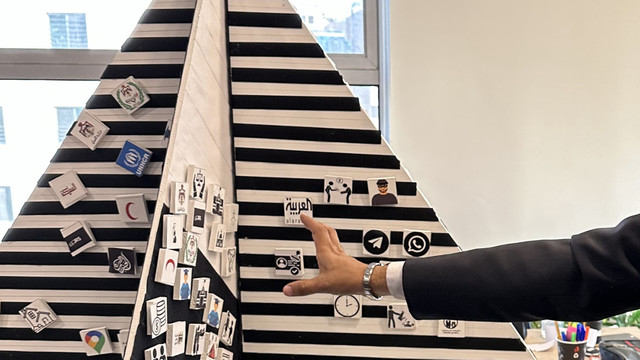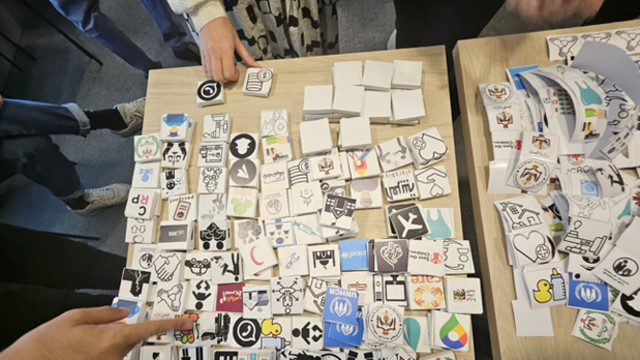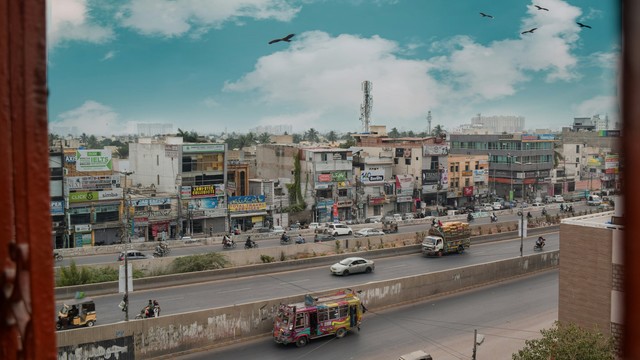Beyond the city’s borders: water and sanitation access for refugees in Mafraq
Guest blogger Reem Alhaddadin examines the link between land classification and water and sanitation access, and what this means for Syrian refugees living in Mafraq, Jordan


Refugees often rely on private water tankers to fill their household water tanks (Photo: copyright WANA)
Around a fifth of the world’s refugees live in camps. Camps offer safety and basic services including shelter, food, water and sanitation.
But while intended as temporary settlements, camps are often in place for decades and absorb significant resources.
Towns and cities have the potential to offer a better life to refugees, with freedom, opportunities and access to education, jobs and housing.
We at the WANA Institute in Jordan are working with IIED, University College London and Jordan University of Science and Technology to examine the possible benefits, through scenario building, for refugees and their hosts if resources spent on camps were instead invested in urban and peri-urban areas that host refugees.
The project looks specifically at the water, sanitation and hygiene (WASH) sector and aims to test the hypothesis of whether redirecting the extensive humanitarian aid resources spent on WASH in refugee camps in Jordan could benefit urban areas hosting refugees and Jordanians.
Our research study area focuses on the host community neighbourhood of Dahyet Malik Abdullah on the peripheries of the city of Mafraq in the north of Jordan.
We looked at the factors limiting WASH access and the costs of various forms of water and sanitation provision.
Barriers to WASH provision: living outside municipal boundaries
Water resources in the city of Mafraq are already under strain (Jordan is one of the world’s most water scarce countries), and ineffective and insufficient infrastructure and water resources adds further pressure to WASH provision.
The flow of Syrian refugees into Mafraq has increased demand on basic services like WASH, but also on housing – to unprecedented levels. In the city’s central urban areas, pressure on housing is particularly acute, forcing many refugees to look for housing in peri-urban areas.
Lands in peri-urban Mafraq have seen a sharp increase in the construction of informal housing, particularly in response to the Syrian crisis.
Examining WASH provision to housing in these peri-urban areas throws up a number of complex issues: the land on which the housing is built is owned by multiple individuals and the land is usually classified as agricultural.
In addition, informal housing on this land is usually built by private contractors and real estate companies who typically follow only minimum residential housing standards in order to meet construction and infrastructure regulations. Connection to municipal water and sanitation networks become an option rather than an obligation – so WASH access for people living here is not guaranteed.
For their part, municipal authorities are able to provide water and sanitation services only to housing that is inside the borders of the municipality’s administrative planning area; where houses and blocks of flats have been built on land beyond the municipality’s borders, where many refugees live, there is no connection to networked WASH services.
The costs of WASH
People living in informal housing outside of the city borders and in peri-urban areas need to find alternative ways to access water and sanitation.
For drinking water, many frequently buy filtered bottles from vendors. For domestic use, water is bought from private tankers. To get water pumped into the tanks in houses, they pay 5 JOD (US$7) for the delivery of one cubic metre of water. Buying two cubic metres of water is slightly cheaper, costing 4 JOD per m³. But water tanks installed in households usually have a capacity of one cubic metre, forcing residents to pay the higher price or to split the capacity for their water tanker with their neighbours.
For sanitation, most households are reliant on cesspits which have to be emptied frequently – costing an average of 60 JOD (US$85) every six months.
WASH access: subscriptions and permissions present further challenge
Landlords are usually responsible for obtaining water meter subscription and sanitation permission.
There are a number of requirements that must be met in order to get a metered connection to the municipal water: the existence of a built estate – ready to be occupied, availability of a water tank, road access to the site with a clear site plan, and connection to a sanitation network if the area is already served. Failure to meet any of these requirements means the house cannot subscribe to get municipal water.
If a house does meet the requirements, getting connected is expensive. For example, a house that is 100 metres from the water mains supply, the cost to get connected can be around 1,000 JOD ($1,400).
Towards more equitable water and sanitation services
Improving WASH access in Mafraq requires technical and adaptive responses to help manage the scarcity of water resources. Our project is looking at a range of possible scenarios to increase availability of water, including capturing stormwater runoff and increasing wastewater treatment and reuse.
There are also considerable problems with water losses in the system before it reaches people’s homes, which need to be addressed by the water company and local authorities.
However, there are other administrative steps that could be taken to connect people (both Syrians and low-income Jordanians) living in informal settlements outside of the municipal boundaries to water and sanitation networks.
This requires greater collaboration between the Ministry of Local Administration, Ministry of Public Works and Housing, the municipality and the water company.
Together these actors must set out a shared vision, including practical ways forward, to extend water and sanitation systems to peri-urban areas where informal house-building has been increasing to accommodate rapid population growth. This might include, for example, redrawing municipal boundaries. Also, there is a need for better cooperation between agencies with a specialisation in WASH, such as UNICEF, others supporting refugees in Jordan’s urban centres and local authorities.
As our research project draws to a close, we will be presenting options for more equitable, sustainable and affordable WASH provision for peri-urban neighbourhoods of Mafraq City, where many refugees are living.
We will also be comparing the cost of these potential improvements with actual expenditure to date on WASH in Zaatari camp, so as to encourage stakeholders to have an informed debate about where future aid allocations could best be invested.
We hope that our examination of technical and administrative barriers to WASH provision will lead to positive changes for Syrians and low-income Jordanians in new informal settlements in Jordan’s cities.




